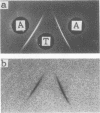Abstract
Clostridium perfringens was found to produce alpha toxin in a synthetic medium containing zinc; in medium containing no zinc, a little toxin was detected in the early logarithmic phase of growth and it disappeared rapidly. No intracellular accumulation of alpha toxin protein occurred whether or not zinc was present in the medium. In zinc-deficient medium, the organisms produced and released into the surrounding medium the protein specifically precipitable with alpha antitoxin in an amount comparable to that of alpha toxin produced in the zinc-containing medium. The protein combined rapidly in some unknown way with zinc to form the active and stable alpha toxin.
Full text
PDF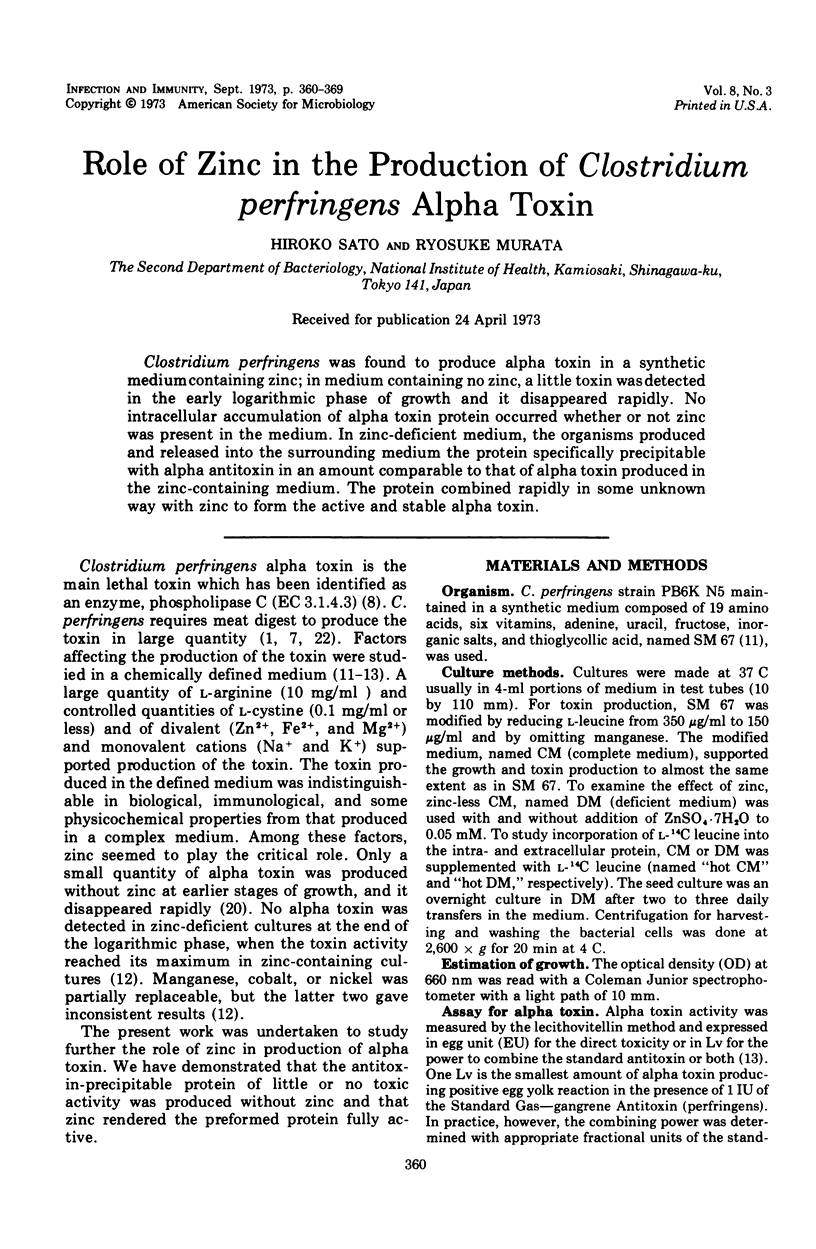
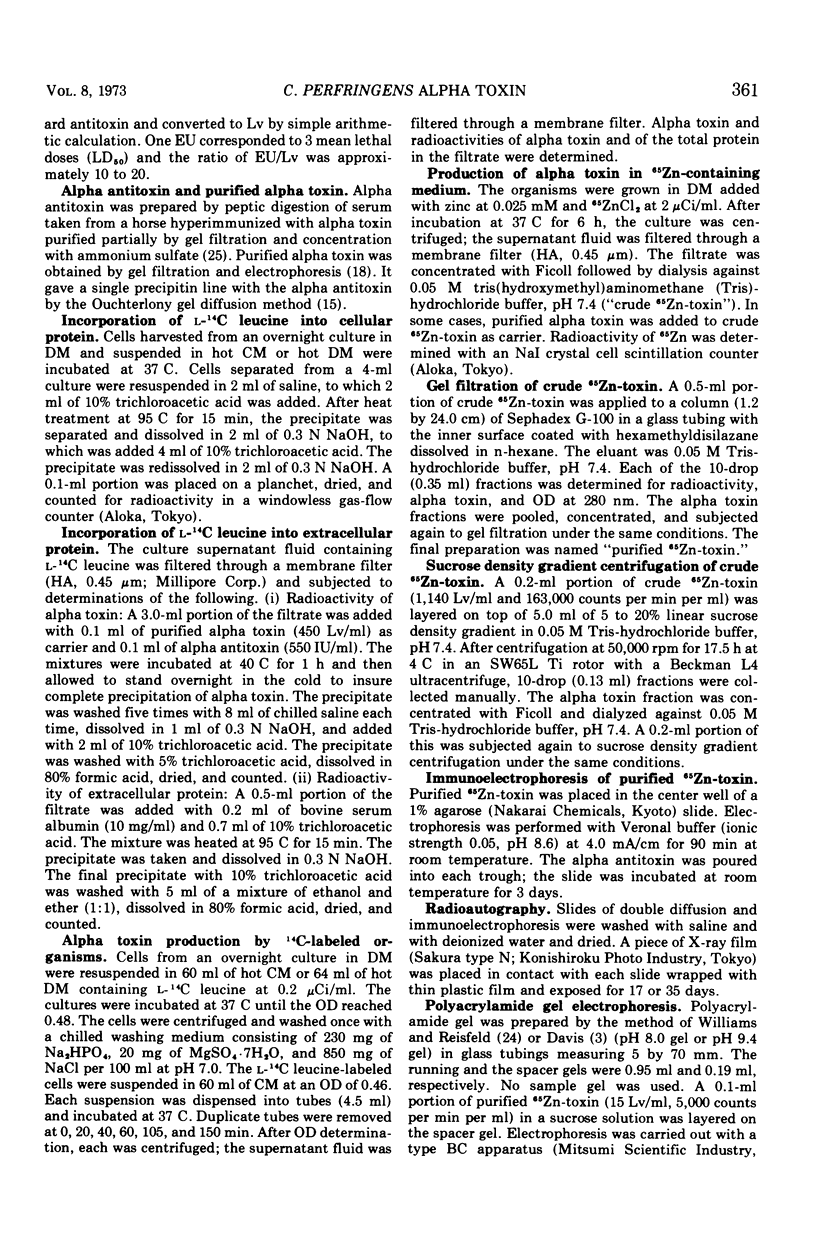
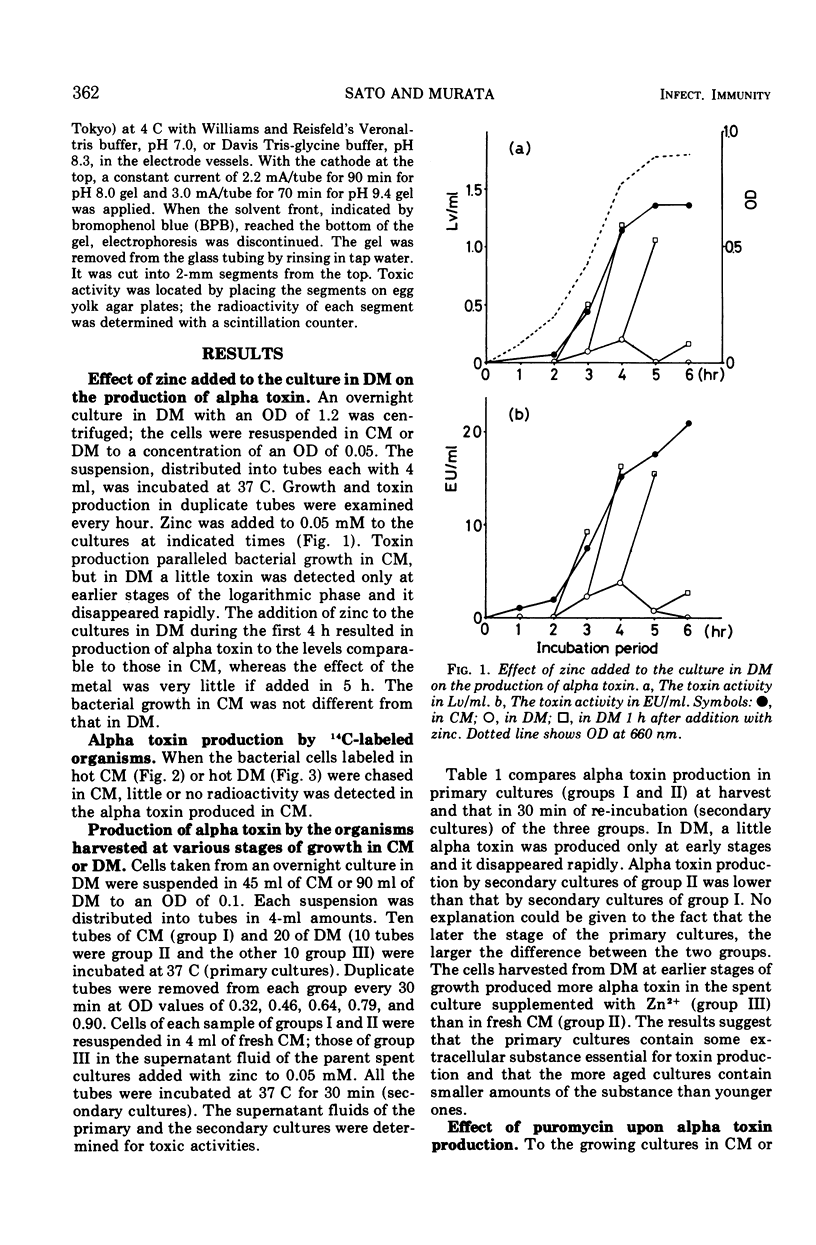
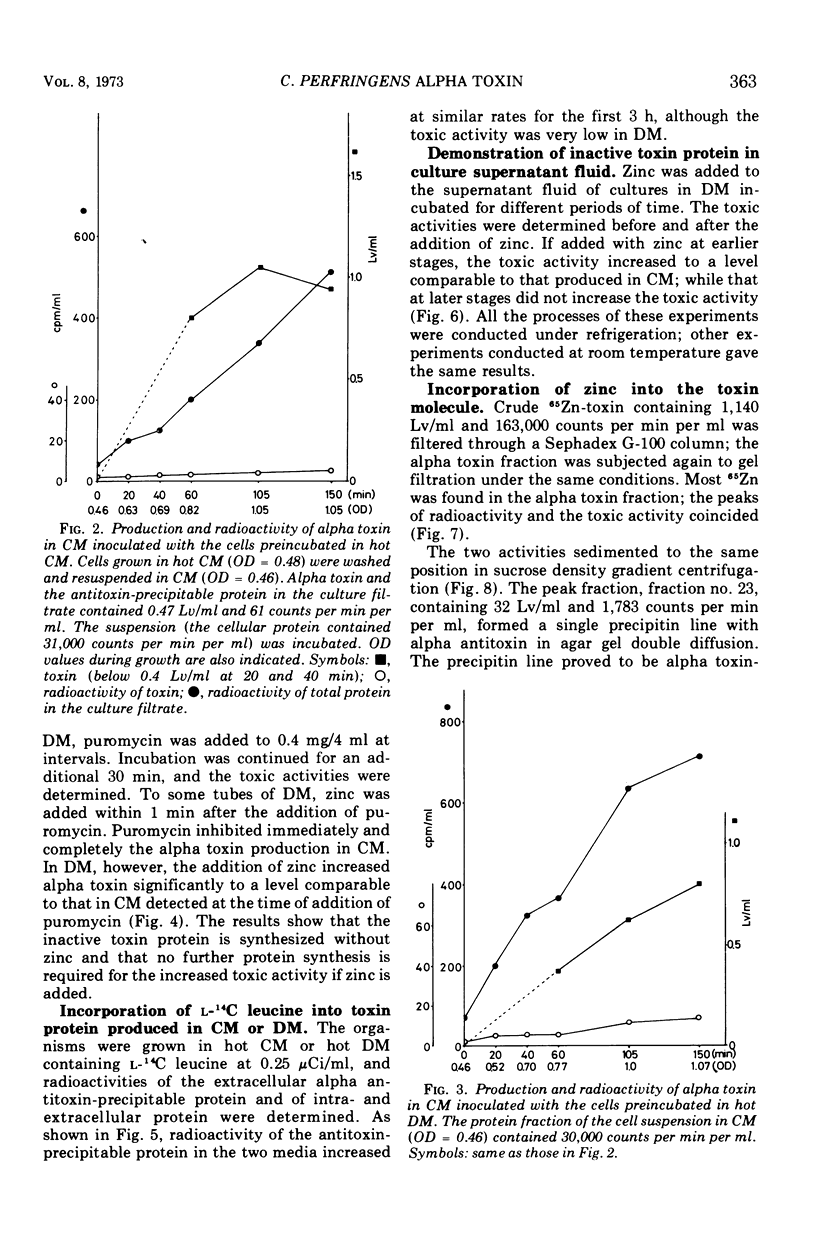
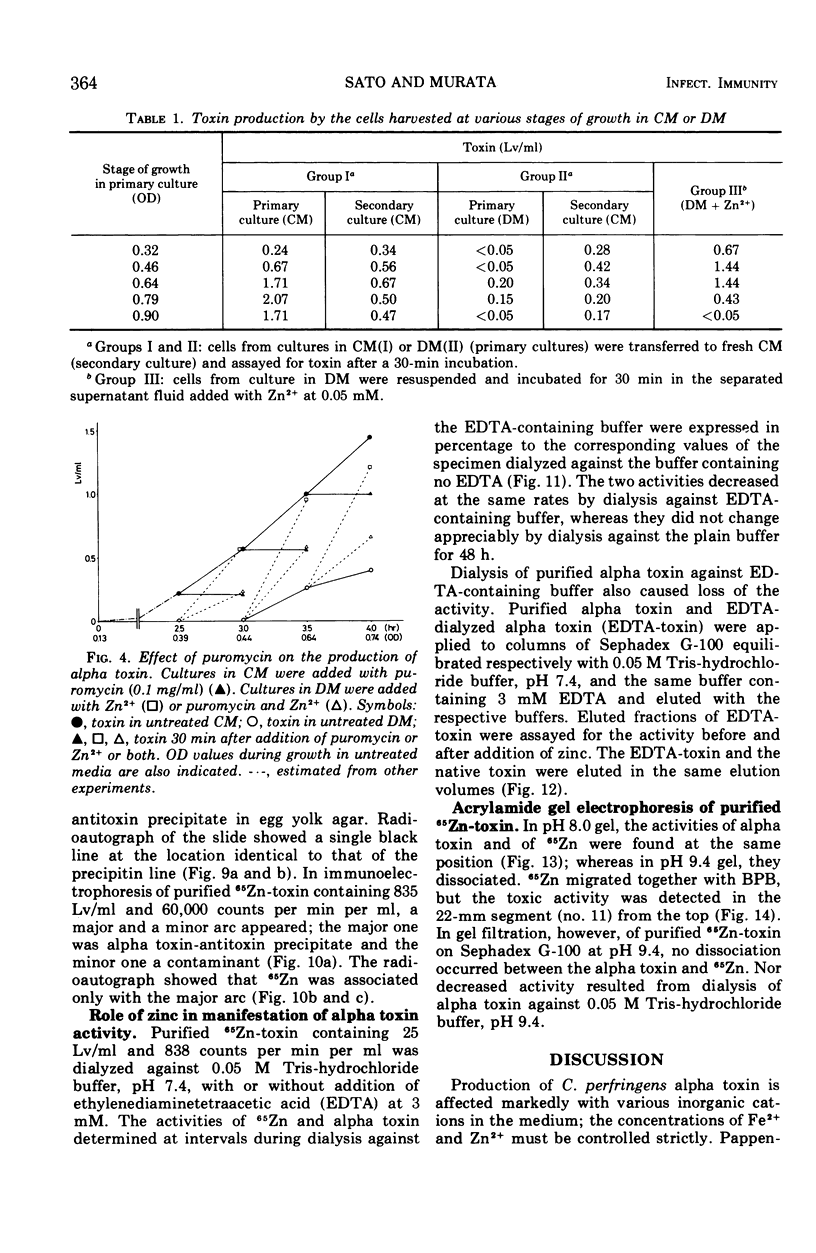
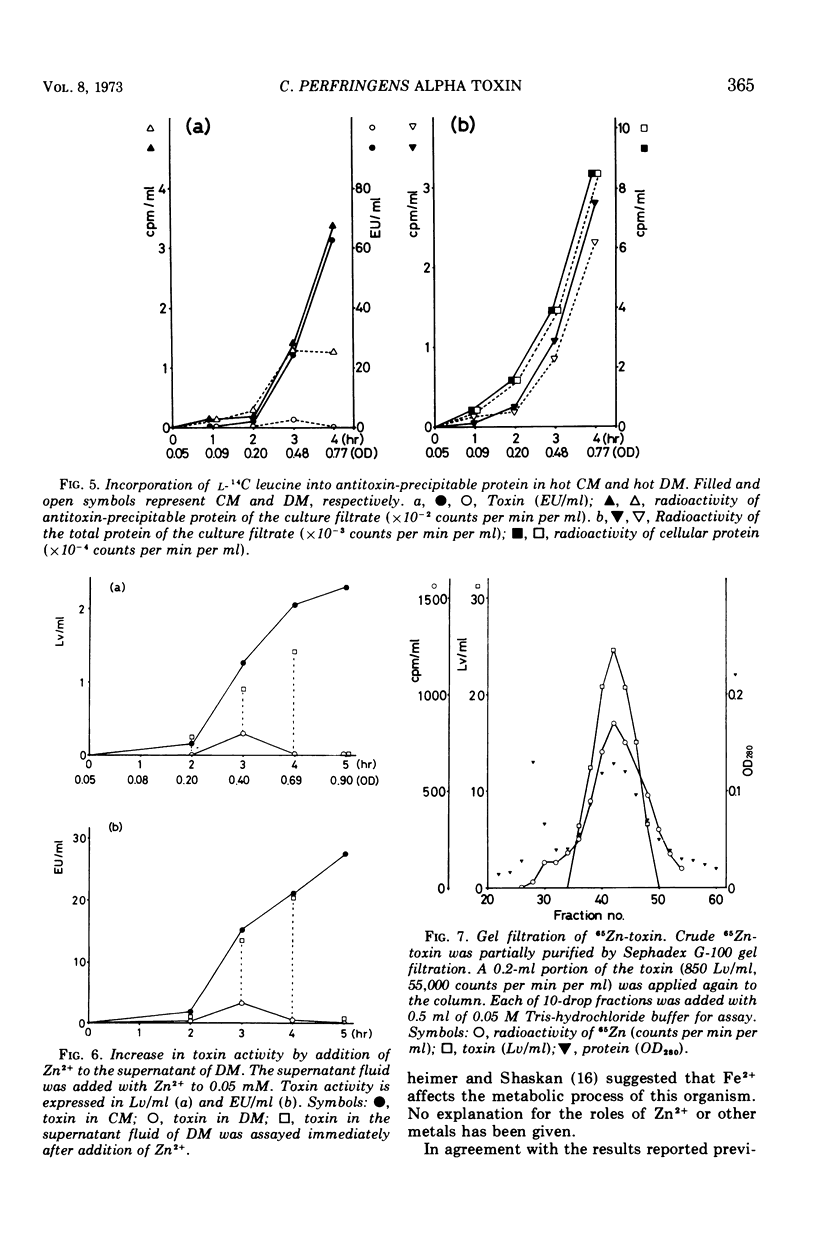
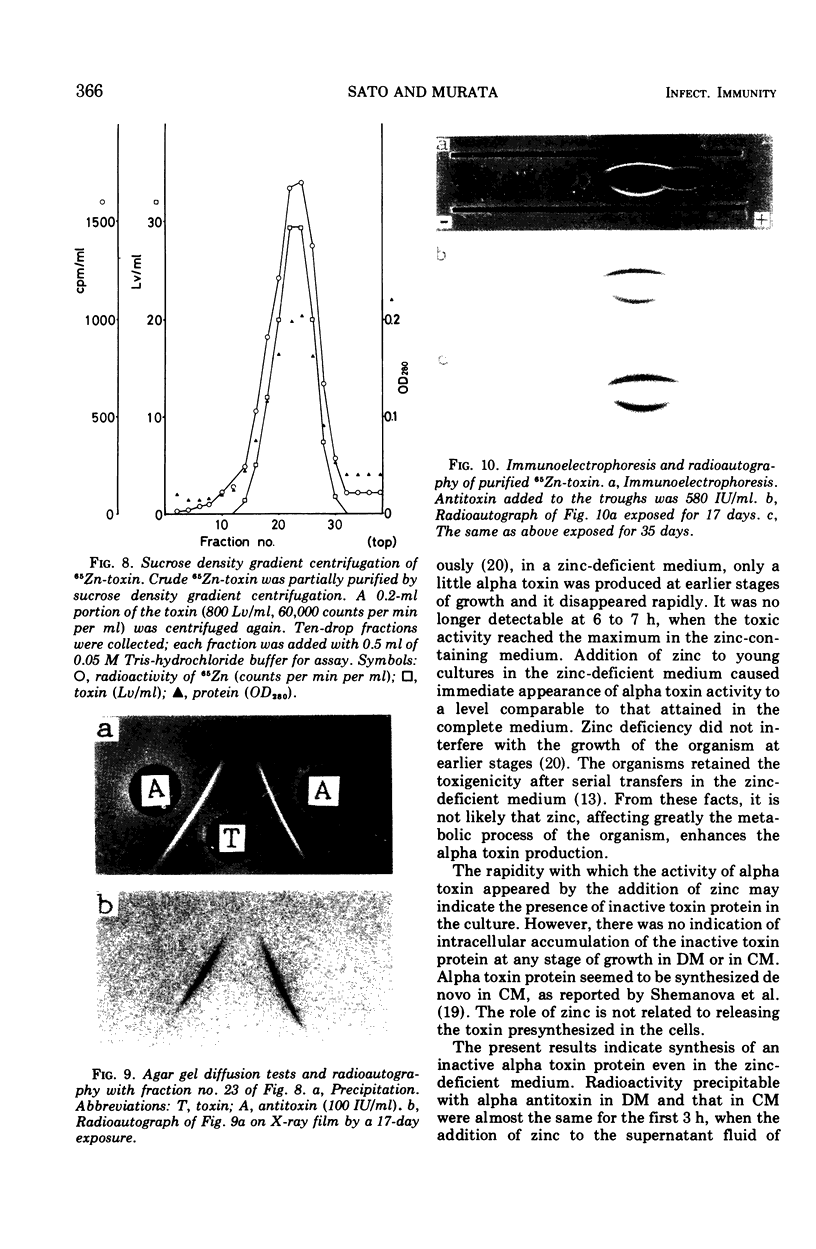
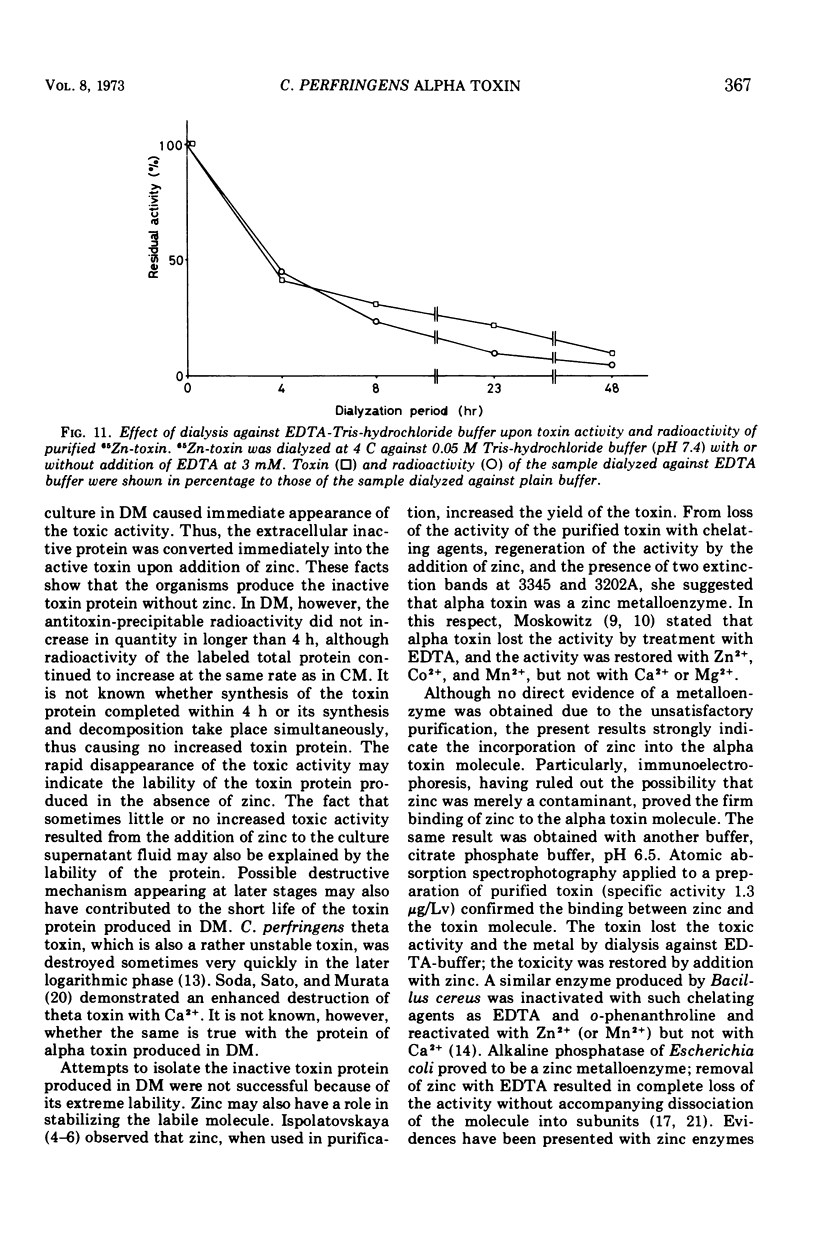
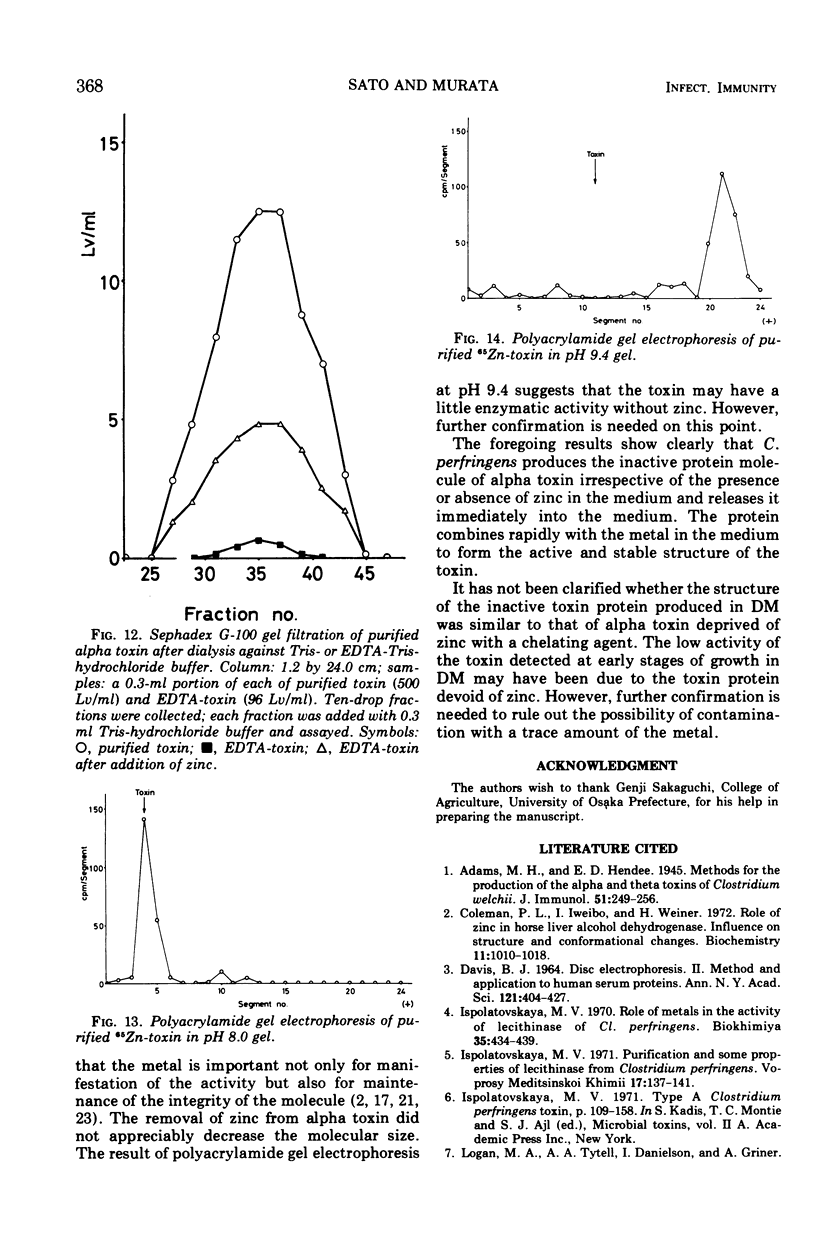
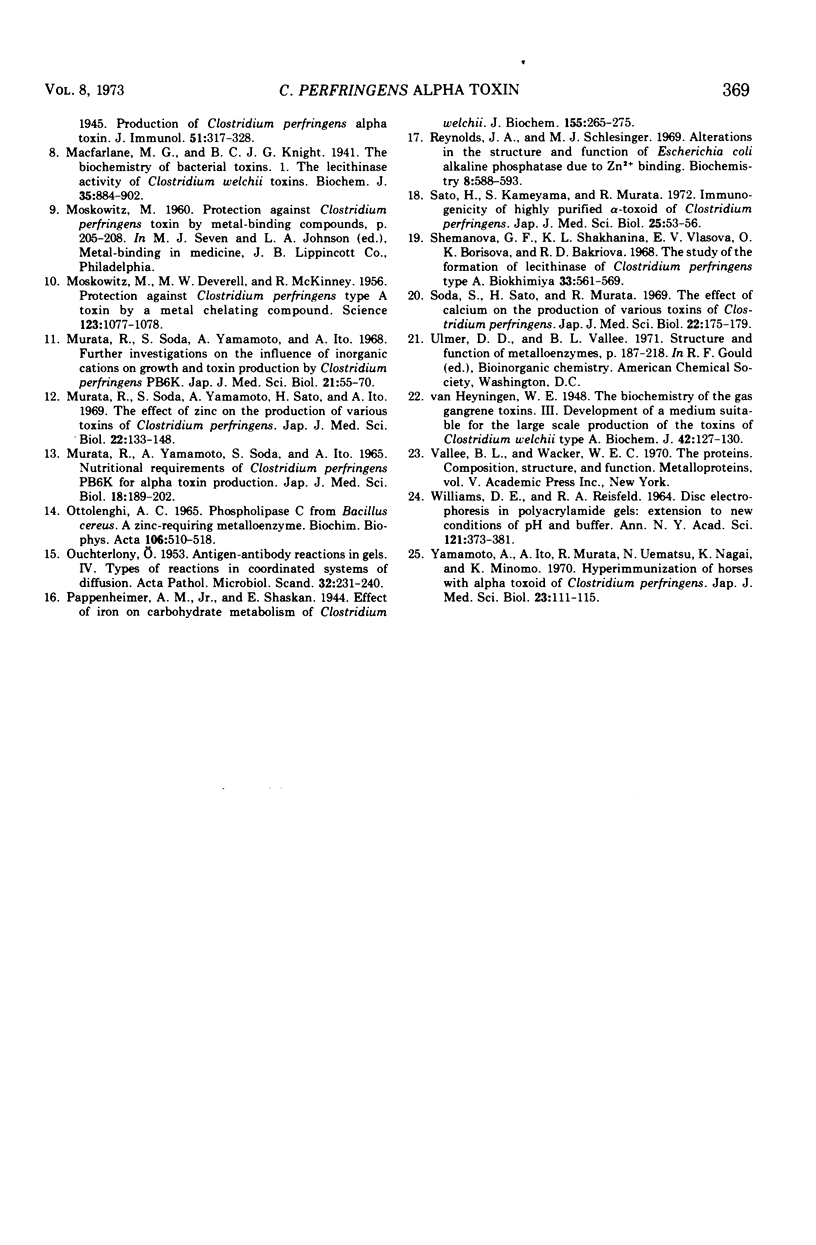
Images in this article
Selected References
These references are in PubMed. This may not be the complete list of references from this article.
- Coleman P. L., Iweibo I., Weiner H. Role of zinc in horse liver alcohol dehydrogenase. Influence on structure and conformational changes. Biochemistry. 1972 Mar 14;11(6):1010–1018. doi: 10.1021/bi00756a010. [DOI] [PubMed] [Google Scholar]
- DAVIS B. J. DISC ELECTROPHORESIS. II. METHOD AND APPLICATION TO HUMAN SERUM PROTEINS. Ann N Y Acad Sci. 1964 Dec 28;121:404–427. doi: 10.1111/j.1749-6632.1964.tb14213.x. [DOI] [PubMed] [Google Scholar]
- Ispolatovskaia M. V. O roli metallov v aktivnosti letsitinazy Cl. perfringens. Biokhimiia. 1970 May-Jun;35(3):434–439. [PubMed] [Google Scholar]
- Ispolatovskaia M. V. Ochistka i nekotorye osobennosti letsitinazy Cl. perfringens. Vopr Med Khim. 1971 Mar-Apr;17(2):137–141. [PubMed] [Google Scholar]
- MOSKOWITZ M., DEVERELL M. W., MCKINNEY R. Protection against Clostridium perfringens type A toxin by a metal-chelating compound. Science. 1956 Jun 15;123(3207):1077–1078. doi: 10.1126/science.123.3207.1077. [DOI] [PubMed] [Google Scholar]
- Macfarlane M. G., Knight B. C. The biochemistry of bacterial toxins: The lecithinase activity of Cl. welchii toxins. Biochem J. 1941 Sep;35(8-9):884–902. doi: 10.1042/bj0350884. [DOI] [PMC free article] [PubMed] [Google Scholar]
- Murata R., Soda S., Yamamoto A., Ito A. Further investigations on the influence of inorganic cations on growth and toxin production by Clostridium perfringens PB6K. Jpn J Med Sci Biol. 1968 Feb;21(1):55–70. doi: 10.7883/yoken1952.21.55. [DOI] [PubMed] [Google Scholar]
- Murata R., Soda S., Yamamoto A., Sato H., Ito A. The effect of zinc on the production of various toxins of Clostridium perfringens. Jpn J Med Sci Biol. 1969 Jun;22(3):133–148. doi: 10.7883/yoken1952.22.133. [DOI] [PubMed] [Google Scholar]
- OUCHTERLONY O. Antigen-antibody reactions in gels. IV. Types of reactions in coordinated systems of diffusion. Acta Pathol Microbiol Scand. 1953;32(2):230–240. [PubMed] [Google Scholar]
- Ottolenghi A. C. Phospholipase C from Bacillus cereus, a zinc-requiring metalloenzyme. Biochim Biophys Acta. 1965 Dec 2;106(3):510–518. doi: 10.1016/0005-2760(65)90067-6. [DOI] [PubMed] [Google Scholar]
- Reynolds J. A., Schlesinger M. J. Alterations in the structure and function of Escherichia coli alkaline phosphatase due to Zn2+ binding. Biochemistry. 1969 Feb;8(2):588–593. doi: 10.1021/bi00830a019. [DOI] [PubMed] [Google Scholar]
- Sato H., Kameyama S., Murata R. Immunogenicity of highly purified -toxoid of Clostridium perfringens. Jpn J Med Sci Biol. 1972 Feb;25(1):53–56. [PubMed] [Google Scholar]
- Shemanova G. F., Shakhanina K. L., Vlasova E. V., Borisova O. K., Bakirov R. D. Izuchenie obrazovaniia letsitinazy Clostridium perfringens tipa A. Biokhimiia. 1968 May-Jun;33(3):561–569. [PubMed] [Google Scholar]
- Soda S., Sato H., Murata R. The effect of calcium on the production of various toxins of Clostridium perfringens. Jpn J Med Sci Biol. 1969 Jun;22(3):175–179. doi: 10.7883/yoken1952.22.175. [DOI] [PubMed] [Google Scholar]
- Van Heyningen W. E. The biochemistry of the gas gangrene toxins: 3. Development of a medium suitable for the large-scale production of the toxins of Clostridium welchii type A. Biochem J. 1948;42(1):127–130. [PMC free article] [PubMed] [Google Scholar]
- WILLIAMS D. E., REISFELD R. A. DISC ELECTROPHORESIS IN POLYACRYLAMIDE GELS: EXTENSION TO NEW CONDITIONS OF PH AND BUFFER. Ann N Y Acad Sci. 1964 Dec 28;121:373–381. doi: 10.1111/j.1749-6632.1964.tb14210.x. [DOI] [PubMed] [Google Scholar]
- Yanamoto A., Ito A., Murata R., Uematsu N., Nagai K. Hyperimmunization of horses with alpha toxoid of Clostridium perfringens. Jpn J Med Sci Biol. 1970 Apr;23(2):111–115. doi: 10.7883/yoken1952.23.111. [DOI] [PubMed] [Google Scholar]




